Lebanon is a small country in the middle east located off of the Mediterranean sea. Beirut, its capital, is known as the “Paris of the Middle East” because of its beauty, charm and culture.
As Barbara Masaad explains in this video for SO Beirut, food is in all aspects of a person’s life in Lebanon. This country is known as the melting pot of the Middle East because over the course of history many civilizations gathered here, bringing their own recipes and their own way of creating food.
The Lebanese people have gathered this culinary knowledge and used it in their cuisine. Because Lebanon is a melting pot, the countries that surround it have similar cuisines. Consequently, Israeli food and Greek food are noticeably similar to Lebanese cuisine.
I come from a huge family in Lebanon where food is the center of each gathering. Making food is an outlet for women to socialize and dining brings the whole family together, no matter what the occasion is.
Lebanese dishes are cooked with olive oil, a substance that has no saturated fat. It has proven to lower your risk of heart disease, cancer and strokes. Coincidentally, populations from the Middle Eastern region have longer life expectancies. Other popular ingredients used in Lebanese dishes include bulgur, garlic, parsley, and mint.
Below, we’ve narrowed down some our favorite Lebanese dishes and drinks.
1. Baba Ghanoush
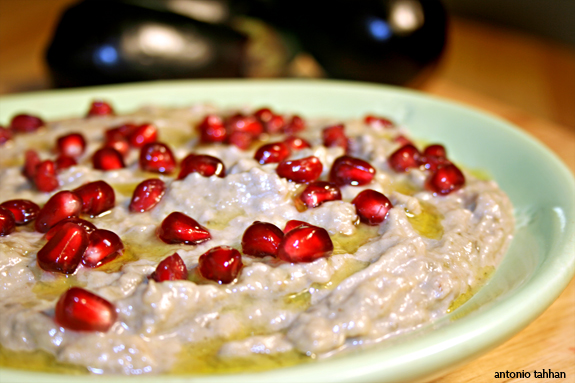
Photo courtesy of Antonio Tahhan
If you like hummus, baba ghanoush is a must-try. It’s a dip that’s served with pita bread and drizzled with olive oil. It tastes very similar to hummus because it’s made with tahini. The main difference is that baba ghanoush is made from eggplant instead of chickpeas, and sometimes it’s topped with pomegranate. The variance of flavors is delicious.
2. Shish Taouk
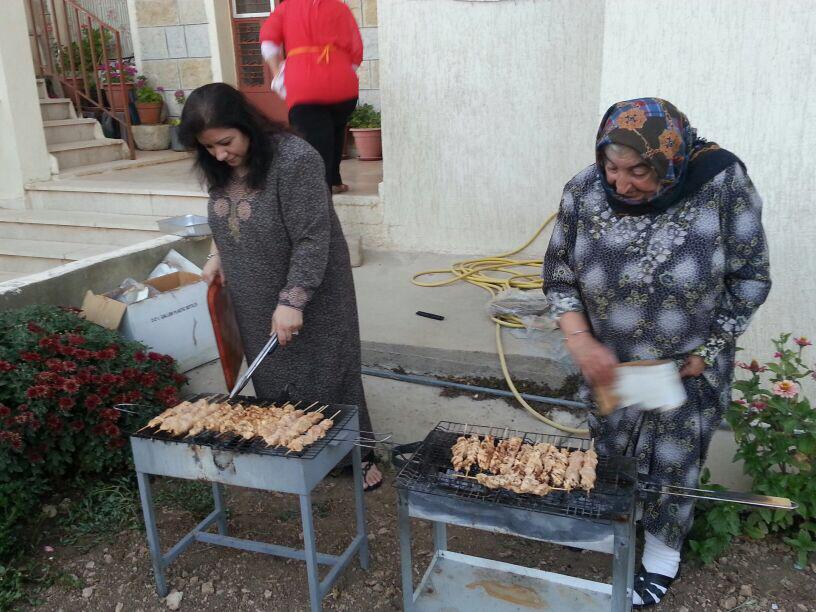
Photo by Mariam Bakri
Shish taouk (or chicken kebab) is a Lebanese staple. What makes it so delicious are the spices. Shish taouk is marinated overnight in lemon juice, garlic, paprika, yogurt and tomato paste. It’s usually served as a platter, or wrapped in hubbus (pita bread) with garlic sauce on the side to create a sandwich.
Sandwiches are quite common in Lebanon, surprisingly. There’s a small pub in Beirut called The Orient Express that cooks up a pretty unique version of this classic dish. They call it “The Ranger.”
3. Kibbe Nayeh
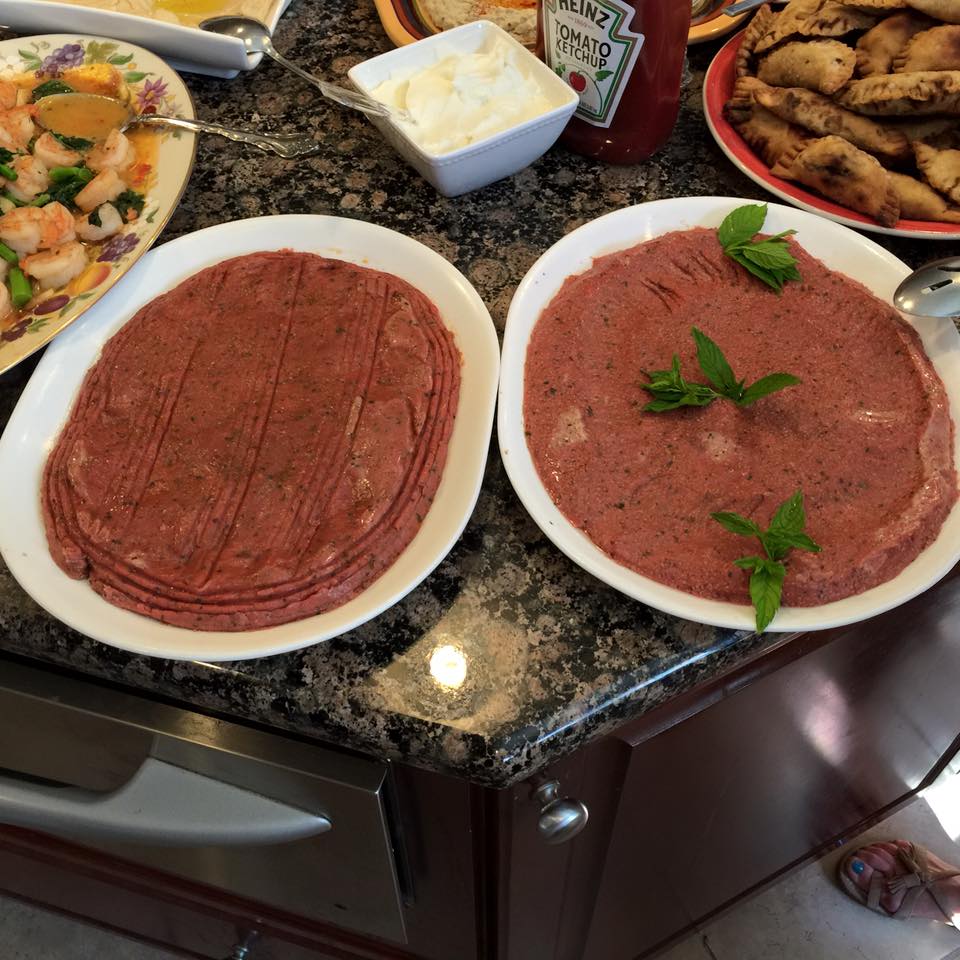
Photo by Jackie Saleh
Ahhhh. Kibbe nayeh… When I was little my dad used to sneak me platefuls of this because my mom didn’t want me eating raw meat. Yeah, you read that right. It’s raw beef (Lebanese sushi?).
Kibbe Nayeh is made from raw beef or lam blended with bulgur, pureed onion, and spices. It is recommended that if you are going to make this you grind the meat yourself in a food processor to avoid disease. Like most Lebanese dishes, it’s served with pita bread and fresh vegetables.
4. Manakeesh
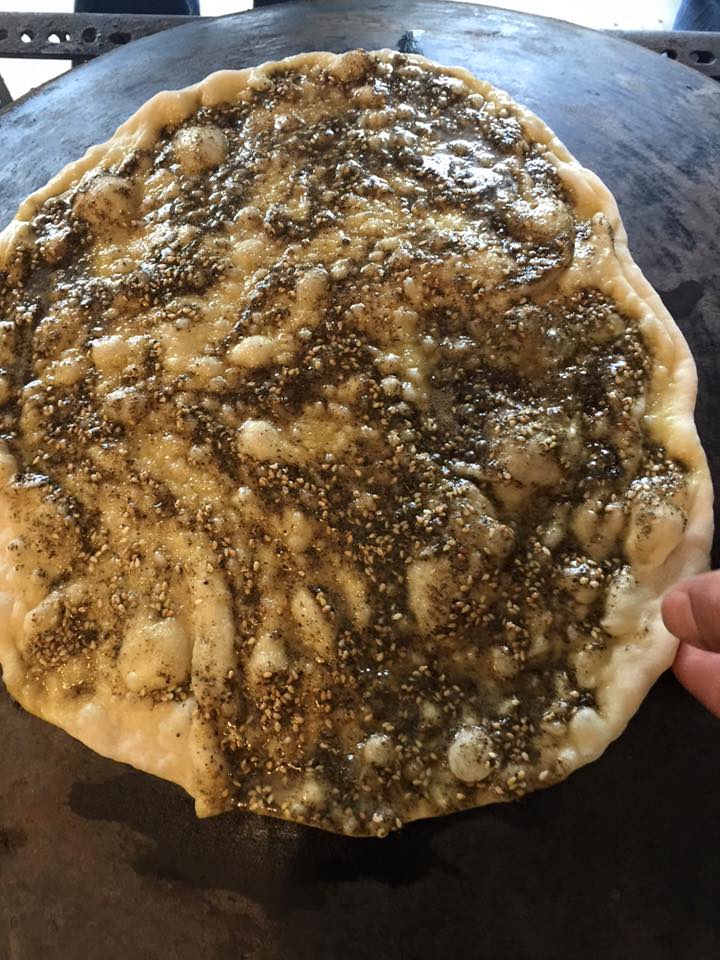
Photo by Salam Daher
Manakeesh is like Lebanese pizza. It can be made with meat, cheese, zaatar (which is a strain of thyme), or kishik (a cracked wheat paste). Made on fresh dough and baked in an oven, manakeesh is typically served with tomatoes, cucumbers, fresh mint leaves, and olives.
5. Falafel
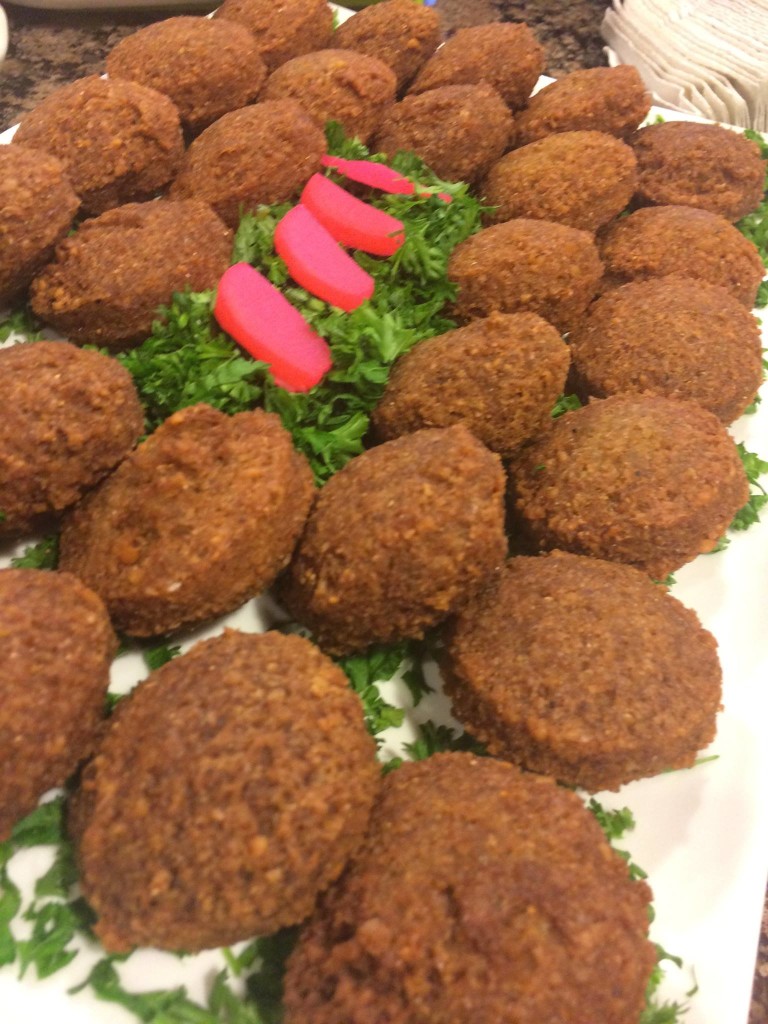
Photo by Amanda Saleh
If you haven’t tried falafel yet, you’re living under a rock. Falafel is made from crushed chickpeas that are deep fried. It’s served in a pita sandwich with vegetables and tahini sauce (tahini is the same stuff they put in hummus and baba ghanoush).
6. Tabbouleh
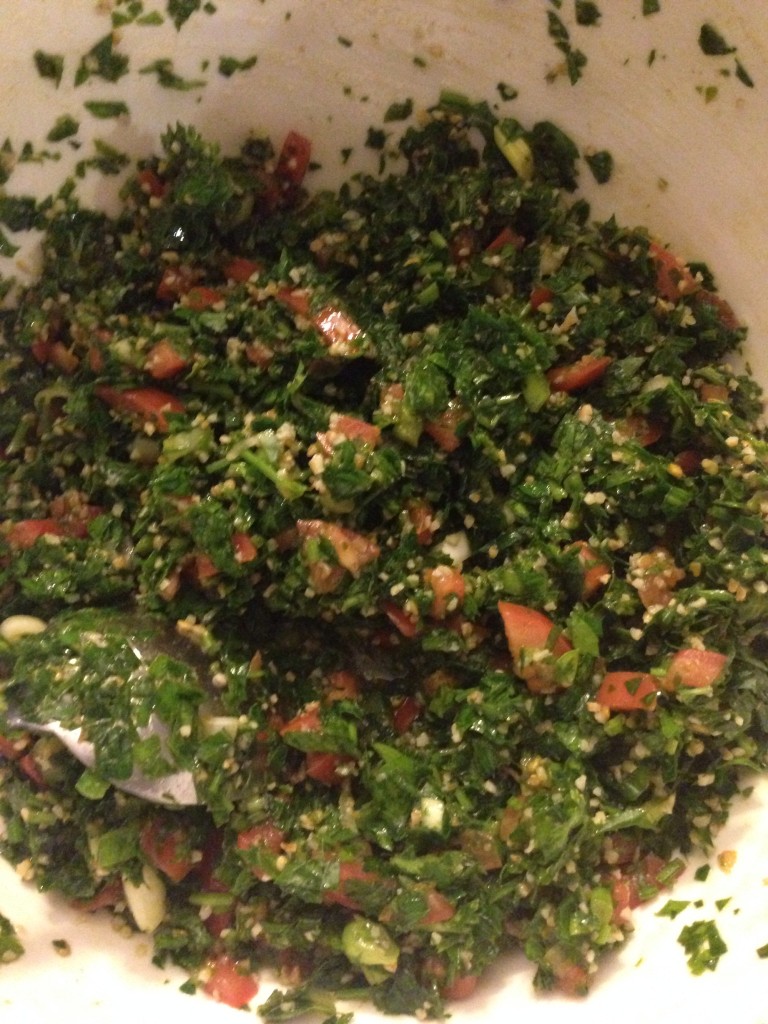
Photo by Salam Daher
Tabbouleh is a salad made of bulgur, tomatoes, onions, and parsley. It’s mixed with olive oil, lemon juice, and salt. It is served with lettuce on the side.
7. Fattoush
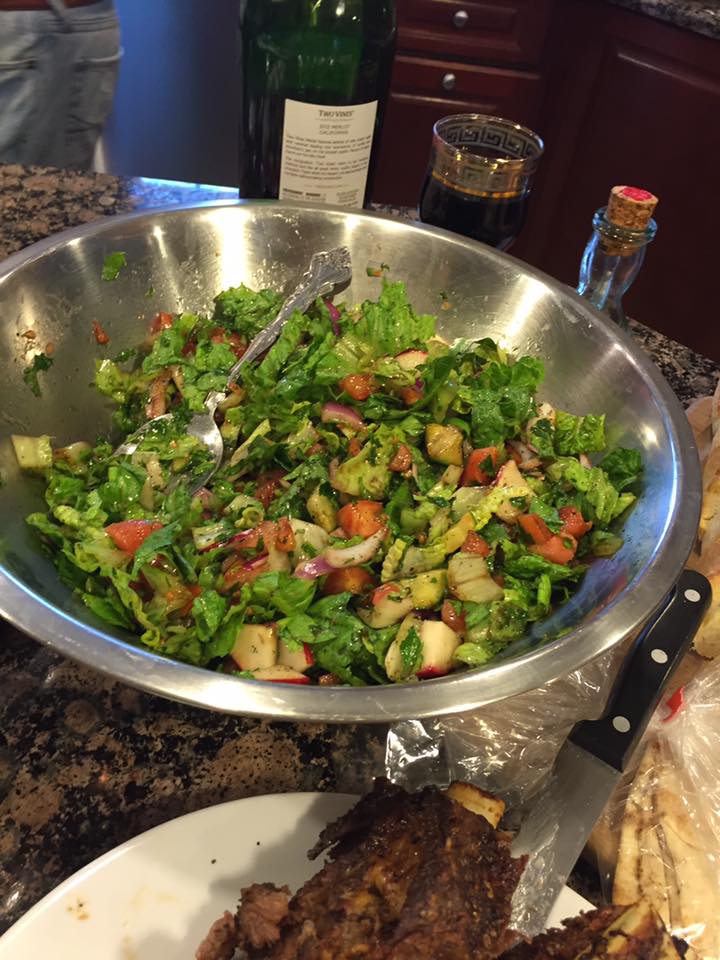
Photo by Jackie Saleh
Fattoush is a traditional Lebanese salad. Instead of croutons, we bake or fry pita bread and then crush it up and mix it in. The dressing is a mixture of olive juice, garlic, lemon, and salt.
8. Shawarma
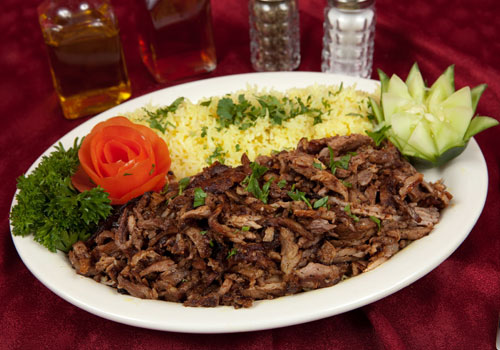
Photo courtesy of pitaking.net
Shawarma is traditionally made on a rotating spit and the meat is shaved off. It is served (as you would expect) on pita bread with vegetables. Shawarma is also served with tahini sauce. It is typically paired with tabbouleh or fattoush. Basically, it’s a Lebanese gyro.
9. Kofta
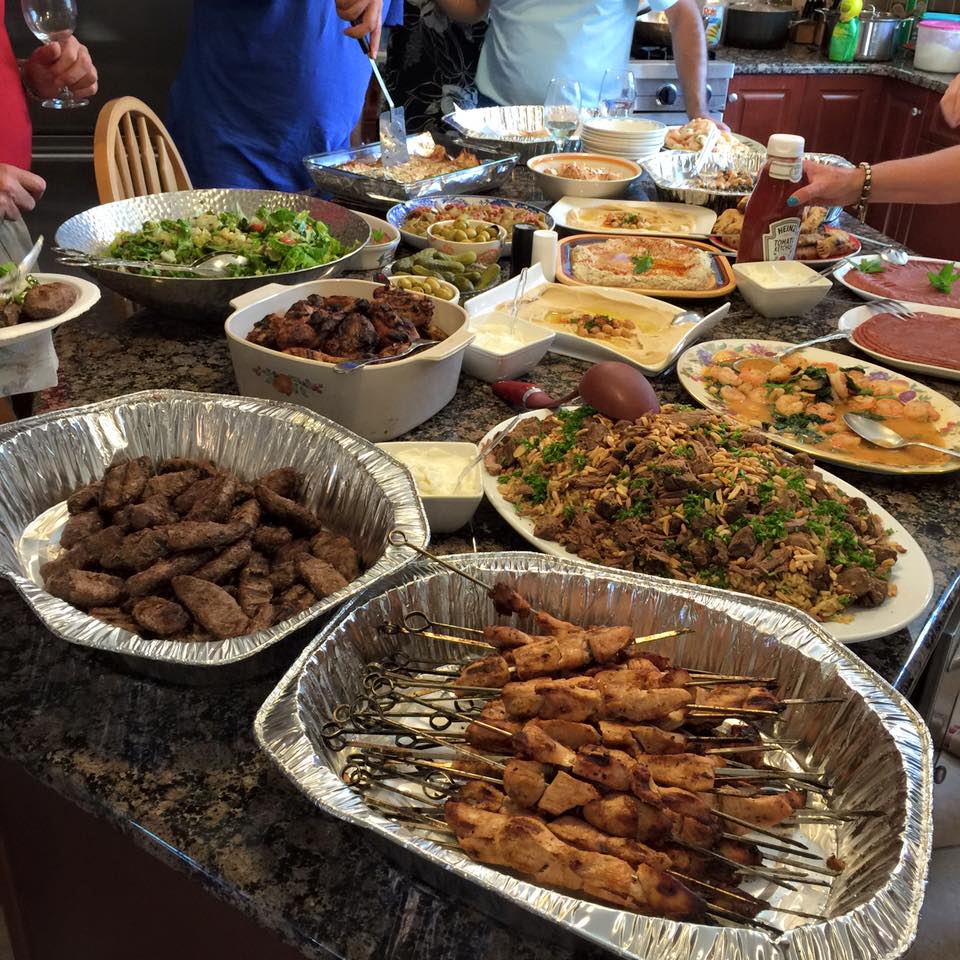
Photo by Jackie Saleh
Kofta is the beef on the left in this image. Kofta are balls of minced meat mixed with parsley, spices, and onions. It can be served on its own, or with potatoes in a tomato sauce. Kofta (otherwise spelled Köfte) has made its way to as far as Turkey, where they eat it with a yogurt dip.
10. Kunafeh
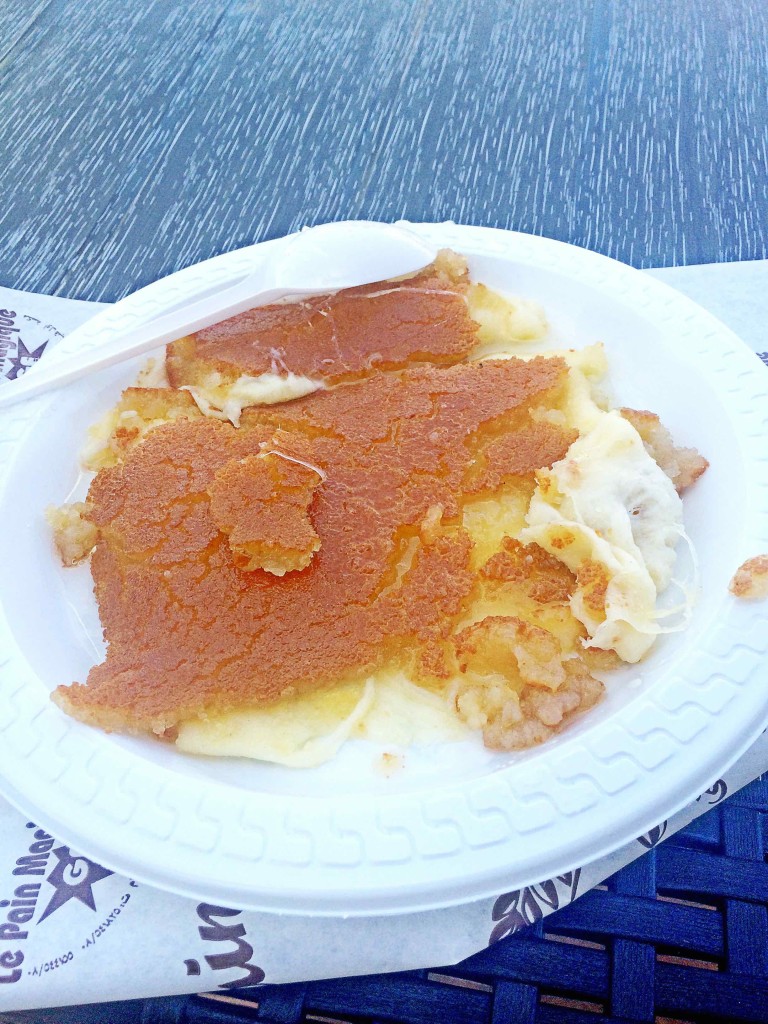
Photo by Amanda Saleh
Kunafeh is a Lebanese delicacy, made of a cheese pastry topped with pistachios and served with a sugar syrup. It can be made in a million different ways. Depending on how it is made, it is served as a breakfast or a dessert. When it is placed on bread, it is eaten as a sandwich at breakfast time. I took this photo at a bakery last summer when I was in Lebanon.
11. Baklava
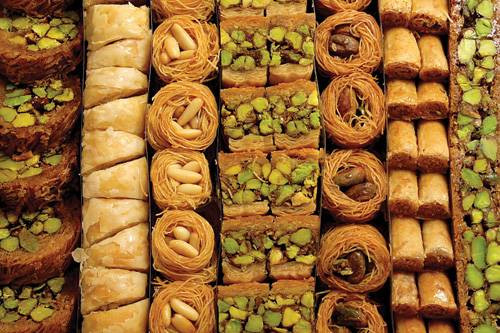
Photo courtesy of Sea Sweet
Baklava is not Greek — it’s Lebanese. What is it? Baklava is a pastry made from layers of filo dough, honey, and assorted nuts. The Lebanese people think of baklava as gold. When I travel to Lebanon, I bring empty suitcases only to fill with boxes of baklava to bring back home.
12. Wine and Arak
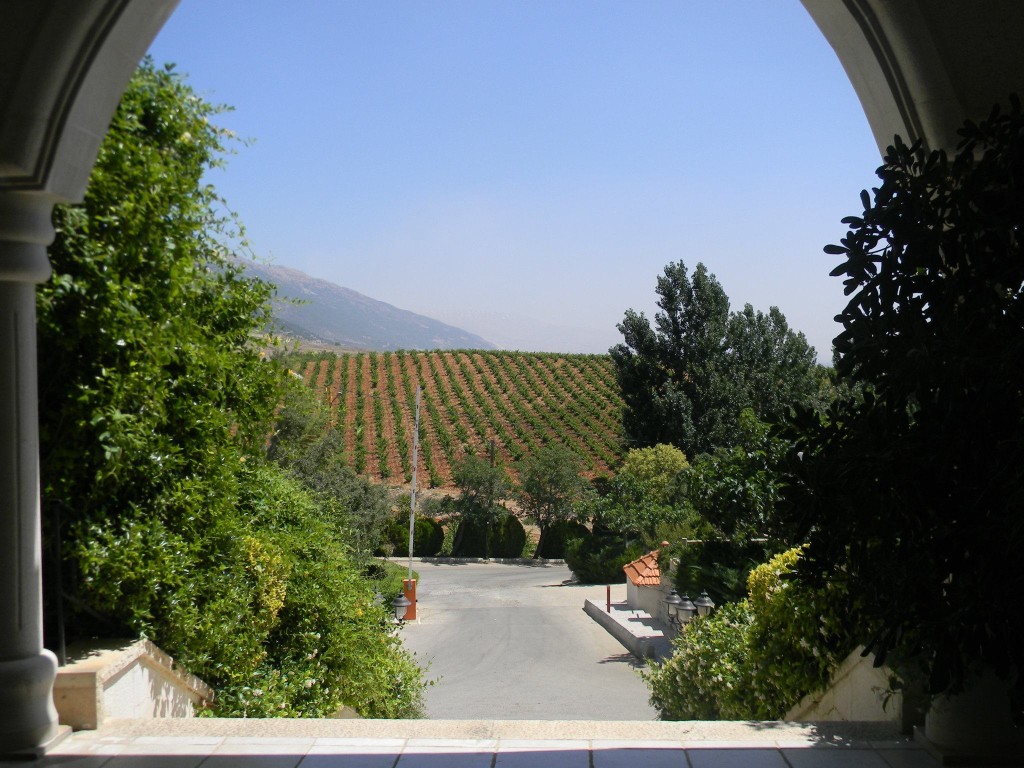
Photo by Amanda Saleh
Last but not least, alcohol (you probably were not expecting that). I come from a small region in Lebanon that is recognized globally for its wine. Lebanon is one of the oldest sites of wine production.
Another thing that is produced here is arak, an alcoholic drink that is made from anise seed. Arak is extremely strong, at about 63% alcohol. It is also colorless.
It’s ironic that alcohol is one of Lebanon’s biggest exports because Lebanon is a Muslim country, and Muslims don’t drink. Pictured above are the beautiful vineyards of Cave Kouroum in Kefraya.
Hopefully I didn’t make you too hungry after reading all of this. I encourage you to step out of your comfort zone and go into a Mediterranean restaurant next time you have the option to. Even better, make a trip when you get the chance.


